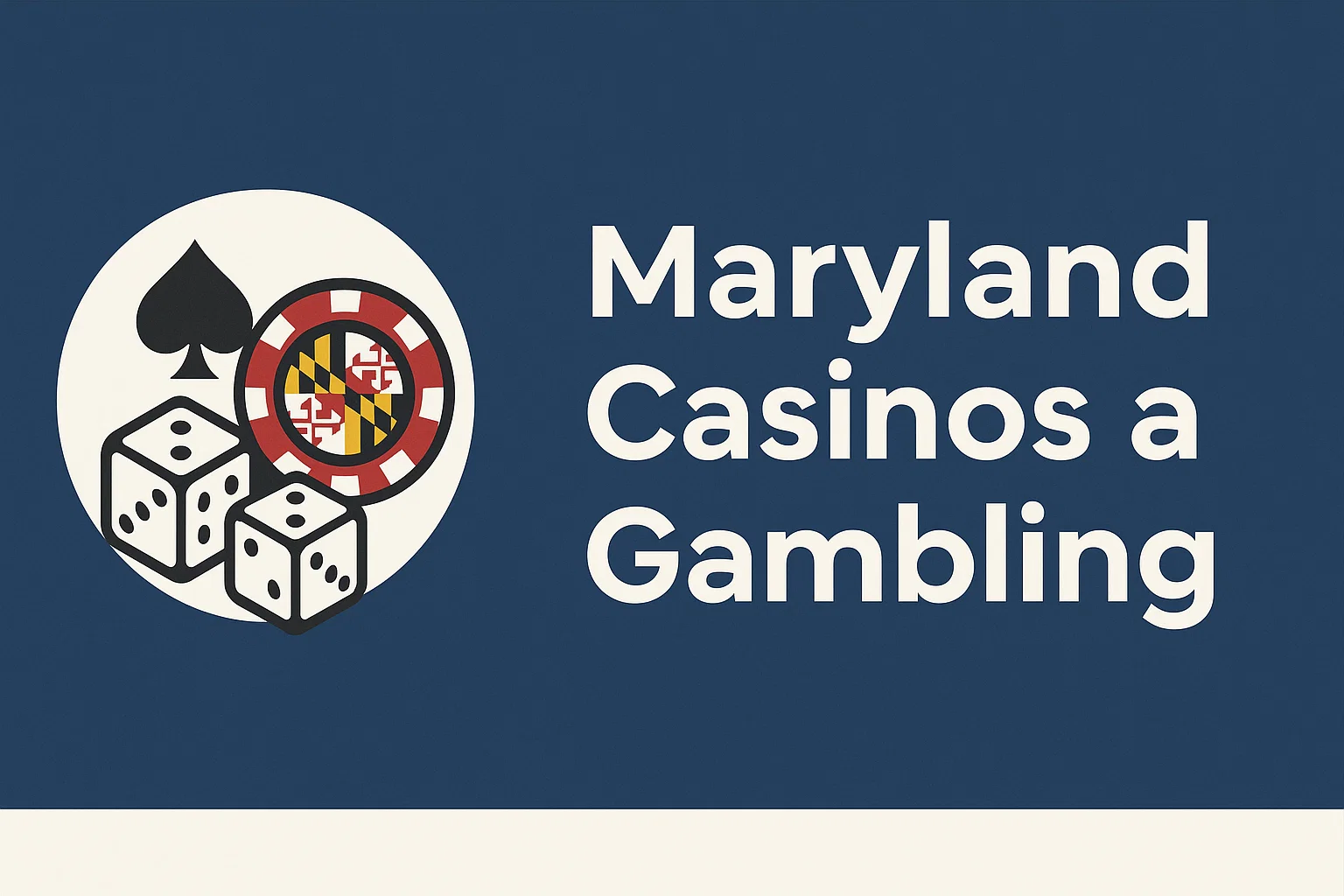
Maryland Casinos and Gambling Overview: What follows is an overview of all the different casinos within the state of Maryland, in addition to a conversation regarding the prevalence of online gambling and sports betting within the state. Additional legalized types of gambling and the scope of Maryland's six casinos will also be covered. Maryland is not usually very restrictive when it comes to gambling—at least not since the state legalized casinos. There are no tribal casinos in Maryland, simply because there is no tribe that has tried to build one in the state. For more information on the gambling within the state, visit Maryland gambling sites. The state is also noteworthy for charitable gaming, as "under state law" it is quite simply not illegal, so charitable gaming regulation is mostly left to cities and counties. The Triple Crown event is raced at the Preakness track in Maryland, a state that has a long history of horse racing. Greyhound racing has been prohibited in this state for many years. The closest state where greyhound racing is allowed is West Virginia—at the Wheeling Island Hotel, Casino, Racetrack or the Mardi Gras Resort—but it is likely only a matter of time before that too is banned. Like in the majority of states, Maryland derives the bulk of its gambling from the state lottery. Unsurprisingly, Maryland participates in the multi-state lotteries Mega Millions and Powerball. Maryland was, in fact, one of three states to sell a winning ticket for the largest jackpot ever in the lottery, though it now stands sixth on the list. Rocky Gap Casino ResortLocated in beautiful Rocky Gap State Park, this casino resort is operated by Golden Entertainment Inc. and is the largest facility offering outdoor recreation such as hiking, camping, canoeing, kayaking, and fishing. The main building features an 18-hole Jack Nicklaus-designed golf course and a 3,000-seat amphitheater. The casino is housed in the same building as the hotel, which has 198 rooms and suites. It has many slot machines for a relatively small space, meaning it can feel a bit cramped depending on your game of choice. Smoking is prohibited in the main casino, but there is a covered smoking area with about 40 slot machines (no video poker or video keno at last visit). The casino offers some 900 slots and a dozen table games, including Blackjack, Craps, Roulette, Mississippi Stud, and Three-Card Poker. No poker room is available. Dining options include the Lakeside buffet, the Signature lounge (featuring live performances from April to October), and the casual LB's lounge-restaurant. Rocky Gap is an exception to the casino being the main draw—most casino visitors also go for golf and the outdoors, as the immediate vicinity is largely residential. I've personally found the casino to be a bit darker and noisier than other similarly sized casinos I've visited, but it's a solid choice on a rainy day in the region. Maryland Racetracks
Poker in MarylandPoker is legal in Maryland and is offered in casinos that have poker rooms. Maryland Live Casino has the largest poker room in the state with more than 50 tables. Charitable Gaming in MarylandIn contrast to the majority of states, all charitable games such as bingo, raffles, instant bingo, pull-tabs, and other games of chance are regulated by counties rather than the state. Currently, more than 20 counties in Maryland allow charitable gaming for nonprofit organizations. These organizations must apply for a license for each event they want to host. In addition to bingo and other charity games, Maryland nonprofits can be licensed to hold roulette, other games of chance, and casino nights. Casino-night charity games are limited to card games. LotteryMaryland also has a full slate of state-run lottery games, with the state participating in Powerball and Mega Millions drawings. The multi-state lotteries are played in nearly every state, creating larger jackpots more quickly than individual lotteries. State law dictates the proportion of lottery revenue given back to players and to the state. The state receives 30%, retailers get 10%, and the remaining 60% is distributed as prizes. Gamblers should compare the expected payout percentages of the casino games before they buy lottery tickets. Most casino games have a house edge of around 10%, so you have better chances in a casino than in lottery tickets. The only casino game with as poor a return is keno. Blackjack can offer a house edge of less than 1%, and even the worst slot machines usually don't exceed an 8% house edge. Slot Machine OwnershipThe residents of Maryland can legally own only those slot machines that are antique and more than 25 years old. The owners of antique slots cannot use their slots for commercial purposes or any type of gambling. Conclusion and OutlookAlthough Maryland hasn't legalized sports books or internet gambling yet, it's fairly progressive when it comes to other forms of gambling. It's home to six casinos ranging from moderately sized to truly massive. Sorry to report, though, that the state taxes gaming revenues so heavily that video poker players will have little or nothing to adore. The lottery has asked for a monopoly on offering sports betting, which would disrupt some casinos (except for those with lottery retailers). Sports betting bills have stalled in recent years, as there has been no consensus to legalize it at racetracks. The potential for a referendum on sports betting exists in the future. The state does not seem to be in any hurry to legalize and regulate online gambling presently, but it is hard to think that they are against it per se—it has simply never been a priority. It is likely that it will be dealt with eventually, especially if the state happens to require some additional revenue. |
|
|
(C) 2006 All-the-Aces.com Email - [email protected]
